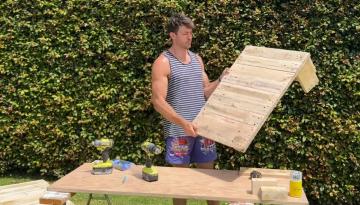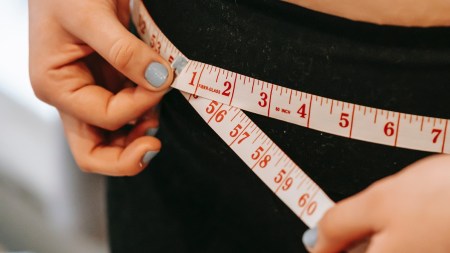Myth or fact: Coffee may be a reason behind hair loss in women
The potential link between coffee consumption and hair loss in women was (probably) unheard of until certified health coach Theo Bergmann highlighted it on Instagram recently. Enjoyed by many people — sometimes more than once — coffee is a go-to drink for those looking for an instant boost of energy. So, could this popular beverage be affecting more than just our energy levels?
Bergmann suggests that excessive caffeine intake, particularly from coffee, might have adverse effects on women’s hair health, as it causes “your adrenals to release more adrenaline which weakens the adrenals over time.” He declares, “The weak adrenals are the reason why women lose their hair.”

Shubha Ramesh L , chief dietician at DHEE Hospital says that contrary to what Bergmann suggests, that caffeine has been studied primarily for its potential benefits when applied topically to the scalp, rather than for effects from drinking coffee.
“Research indicates that caffeine can stimulate hair follicles and extend the life cycle of hair growth when applied directly to the scalp. This is achieved through caffeine’s ability to counteract the effects of dihydrotestosterone (DHT), which is known to cause hair loss,” she informs. “However, these benefits are mostly noted through topical application and not necessarily through consumption.”
Shubha cites a “pivotal study” conducted in 2007 demonstrating that caffeine applied directly to hair follicles extracted from individuals with androgenetic alopecia, could counteract the suppressive effects of testosterone on hair growth. The study showed an increase in the growth of cultured hair follicles by approximately 46% and extended their lifecycle by 33%.
 Excessive intake of caffeine can potentially lead to hormonal imbalances and affect nutrient absorption. (Source: Freepik)
Excessive intake of caffeine can potentially lead to hormonal imbalances and affect nutrient absorption. (Source: Freepik)
Application vs consumption
The absorption of caffeine through the skin, Shubha says, allows it to reach the hair follicle directly, bypassing the gastrointestinal tract where much of its potency could be lost. A study mentioned in the International Journal of Dermatology suggests that topical application of caffeine is more effective for delivering targeted effects on hair growth compared to dietary intake, which does not significantly impact the hair follicles due to systemic dilution.
She notes, “While there is a robust body of evidence supporting topical caffeine application for hair growth, the direct correlation between oral consumption of caffeine and hair health improvement lacks substantial empirical support.” Oral consumption of caffeine is mostly metabolised by the liver and has widespread systemic effects that do not specifically target hair follicles.
Potential systemic effects of excessive caffeine on hair health
Hormonal influence and nutrient absorption
Excessive intake of caffeine can potentially lead to hormonal imbalances and affect nutrient absorption, which indirectly may impact hair health. “For instance, high levels of caffeine can increase cortisol, which might contribute to the telogen phase of hair follicle cycling, where hair shedding is more common,” Shubha explains. Moreover, caffeine can interfere with the absorption of essential nutrients like iron and magnesium, crucial for healthy hair growth.
Research findings
According to a review in the Journal of Clinical and Diagnostic Research, she discloses that while moderate caffeine intake doesn’t typically cause hair loss, excessive consumption can lead to negative health effects that may indirectly influence hair quality and growth.
Recommendations for optimal hair health regarding caffeine
Moderation and monitoring
“It is advisable for individuals concerned about hair health to monitor their caffeine intake and keep it within the recommended limits — generally not exceeding 400 mg per day,” Shubha recommends.
Incorporation of topical treatments
Considering the evidence supporting caffeine’s beneficial effects on hair when applied topically, she adds, individuals might explore hair care products that contain caffeine as an active ingredient to directly stimulate hair growth and improve hair health.
Disclaimer: The copyright of this article belongs to the original author. Reposting this article is solely for the purpose of information dissemination and does not constitute any investment advice. If there is any infringement, please contact us immediately. We will make corrections or deletions as necessary. Thank you.





